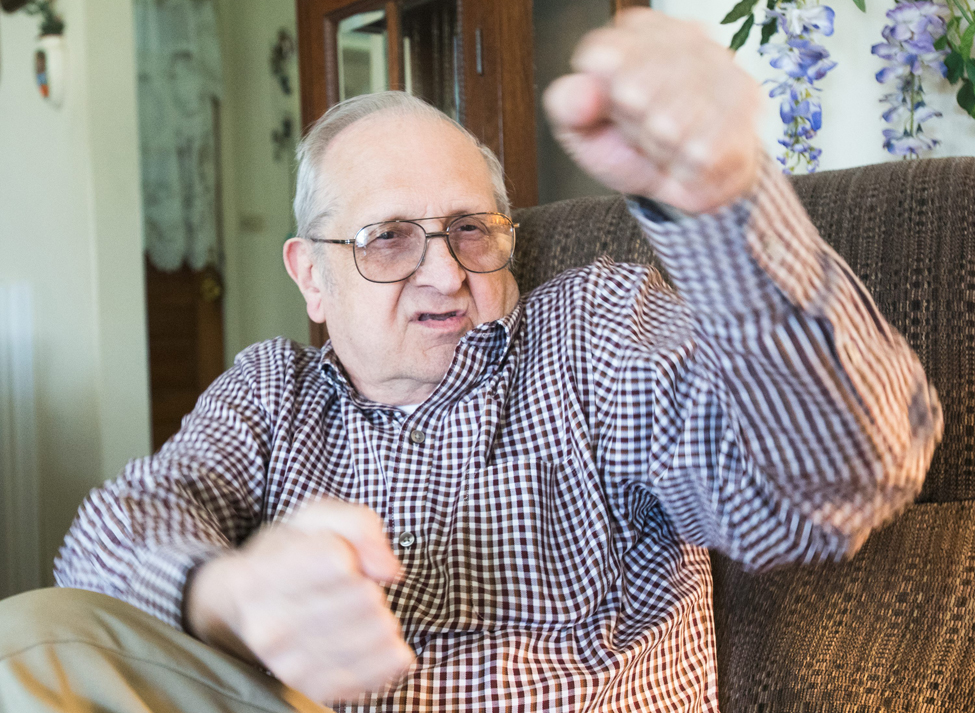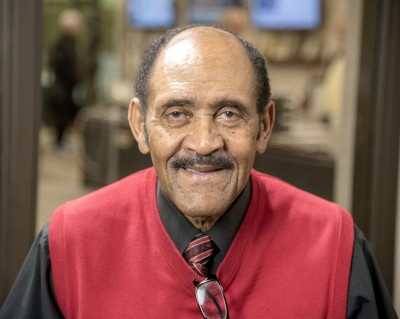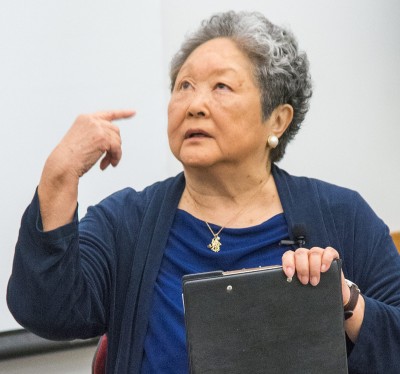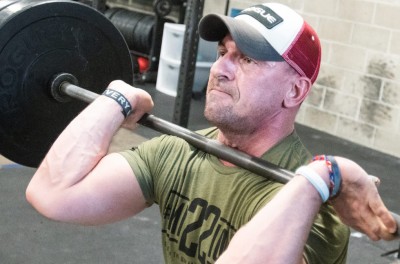Ralph Hamilton
By Paul Wood

Photo By Robin Scholz/The News-Gazette
Robin Scholz/The News-Gazette Ralph S. Hamilton was a weather observer at height of Vietnam War talks about his experiences at his home in Rantoul on Friday, April 27, 2018.
RANTOUL — When Viet Cong fighters infiltrated Ralph Hamilton’s camp near an extensive tunnel system, they had the opportunity to inflict great harm — but also ran the risk of getting themselves killed.
“The VC were like the Democrats, they were just disorganized,” the master sergeant said.
A Viet Cong lieutenant colonel cut his hair, and a “hoochmaid” did his laundry — both were killed in the same assault on the base.
Hamilton was assigned to one of the most dangerous spots in Vietnam, Cu Chi, just north of Saigon — and nearly on top of Viet Cong tunnels. There were thousands of miles of tunnels.
The bases were created efficiently and simply, said Hamilton, who served as a meteorologist.
“The planes took a flying crane and dropped a bomb to put a hole in the ground and set up concertina wire around it, and that was home,” he said.
Everybody else on the base wore Army uniforms except Hamilton and a small weather crew and one Navy medic.
Besides the Viet Cong infiltrations, there were firefights on a regular basis.
“When the shooting was going on, I generally kept my head down,” he said.
But once, while stowing equipment in a corrugated steel crate, he heard AK-47 fire and felt a sharp pain in his hip.
“I was going to call for a medic, but there wasn’t any blood,” Hamilton said. He thinks he might have twisted a nerve.
“In Korea, I thought bad things happened to other people. By Vietnam, I was the old guy, and I knew better,” he said.
He realized it was a war with a certain randomness. The Vietnamese who worked on the base “could start lobbing some mortar shells.”
They were also skilled at booby-trapping.
A friend of Hamilton’s named Lloyd picked up a food tray set up on a Claymore mine, and that was the last of his friend.
Like many other young men, Hamilton faced the draft into the Army.
“I joined the Air Force to avoid going into the Army,” he said.
Hamilton, 85, had served as a radio operator in the Korean War but “was replaced by the teletype,” he said.
Well into his 30-year Air Force career (active and reserve), Hamilton volunteered to go to Vietnam when he saw it was inevitable.
And in Vietnam, he was assigned to work with the Army after all.
“The Army doesn’t need weather people during peacetime,” he said. “But during the war, they were interested in whether the tanks would get stuck in the mud in the rainy season.”
The Army also needed information on visibility conditions for the hundreds of helicopters in the area.
He was in the Fifth Weather Squadron in 1968 and 1969, near the peak of the war.
“There were 540,000 Americans in Vietnam then,” he said.
After his service overseas, Hamilton came home to find an America that he wanted to change.
While in Korea and Japan, he met his future wife, Fumiko, known here as June. They had 60 happy years before she passed.
But after he married June, they could not legally stay in the same motel room in some states because of laws against interracial marriage. He couldn’t believe this was happening in his own country.
The United States Supreme Court ultimately invalidated those laws in the 1967 Loving v. Virginia case.
His reason for living in Rantoul: The former Chanute Air Force Base had a well-regarded meteorological program.
Do you know a veteran who could share a story about military service? Contact Paul Wood at pwood@news-gazette.com.
Read more stories from local veterans:
 Peter Thomas
RANTOUL — When he heard the shout “incoming!”, Peter Thomas had the training to get out safely from the burst of Russian …
Peter Thomas
RANTOUL — When he heard the shout “incoming!”, Peter Thomas had the training to get out safely from the burst of Russian …
 Yuki Llewellyn
Yuki Llewellyn knows what it’s like to grow up in an interment camp. But she wasn’t held by the Germans or the Japanese. …
Yuki Llewellyn
Yuki Llewellyn knows what it’s like to grow up in an interment camp. But she wasn’t held by the Germans or the Japanese. …
 Mike Sandone
URBANA — About 22 military veterans commit suicide every day. Marine Sgt. Mike Sandone, 40, is a physical fitness expert …
Mike Sandone
URBANA — About 22 military veterans commit suicide every day. Marine Sgt. Mike Sandone, 40, is a physical fitness expert …